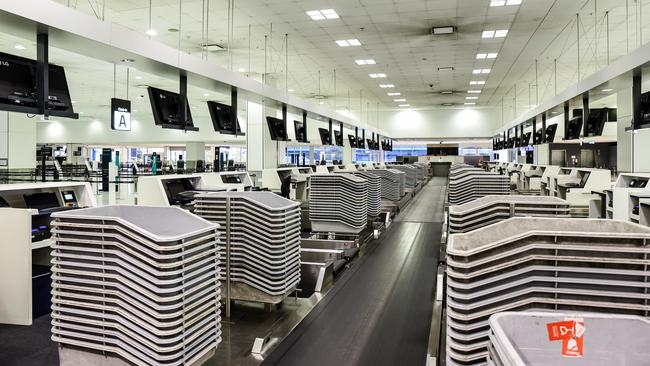Loss of pilots and skilled workers threatens aviation rebound
Over 1000 pilots will need to log hours in simulators before flying again and even more ground handlers may never return to the industry, it is feared.

Australia’s aviation industry will struggle to rebound from the latest lockdowns and border closures, with many skilled workers abandoning their careers for something more secure.
A public hearing of the Senate inquiry into the state of Australian aviation, heard pilots and ground-handling workers were among those likely to be lost to the industry, as Australia trailed the rest of the world in opening up.
The Australian Federation of Air Pilots technical and safety manager Marcus Diamond said already many international airlines were seeking to recruit more staff as flying increased.
He said that could leave Australia very short, when borders finally reopened and airlines were expected to rapidly rebound.
“As we’ve seen through other crisis in the aviation industry, where (pilots) have been unable to obtain employment in Australia, they will travel around the world to gain work,” Mr Diamond said.
“Wages will be very high to attract skilled pilots and that will exacerbate our problem of not having current pilots to work once the industry ramps up again.”
Already 1000 pilots had lost “currency”, due to the lack of flying and the high cost of simulator sessions to retain their licences, the inquiry was told.
AFAP president Louise Pole said with simulators generally in short supply, it was unrealistic to think large numbers of pilots could be retrained quickly.
“The airlines can’t train people who are not current back into aircraft as quickly as they would like to, so what will happen is the demand will return and the airlines will be keen to assist with that demand but won’t be able to train fast enough,” Captain Pole said.
A sudden ramp-up of flying was also threatened by a shortage of ground handling workers, such as baggage handlers, check-in staff and cleaners, many of whom were ineligible for government assistance.
The inquiry heard about 6000 of the 9800 ground handling workers employed across the industry were stood down, with only those in declared Covid-19 disaster zones receiving wage support.
Australian Aviation Ground Handlers Alliance chair Glenn Rutherford said many had found other work and were not expected to rush back to an industry beset by uncertainty.
“It could mean sufficiently trained and accredited ground crews are not available for work until March next year,” Mr Rutherford said.
“Airlines can’t operate without us, so that will have major consequences for the peak Christmas season.”
Tourism and Transport Forum chief executive Margy Osmond also warned that Australia would suffer a significant disadvantage as a result of the delayed reopening of borders, and the uncertainty surrounding the conditions of international travel.
She said the number of international airlines operating into Sydney had fallen from 42 to just 12 during the pandemic, and many may never return.
“International airlines are under immense pressure to send their teams and crews to other parts of the world where they can start working again,” Ms Osmond said.
“That’s a real problem because it doesn’t mean they come back automatically.”
Questions surrounding green lanes, bubbles and vaccination requirements were also an impediment to rebuilding Australia’s once thriving international tourism industry, she said.
“Where do you promote Australia if you don’t know what vaccines you’re going to accept?” said Ms Osmond, pointing to the fact the European Union had already vetoed Indian-made AstraZeneca.
Travel agents were another “at risk” sector of the industry, with the number of people in the sector falling from 40,000 to 25,000 in the past 19-months.
Australian Federation of Travel Agents chair Tom Manwaring said without the expertise of a professional navigating travel in the post-pandemic world would be very difficult.
“There’s a real risk that when we come out of this after Christmas, many of us won’t be standing,” Mr Manwaring said. “Businesses are literally on the edge.”






To join the conversation, please log in. Don't have an account? Register
Join the conversation, you are commenting as Logout